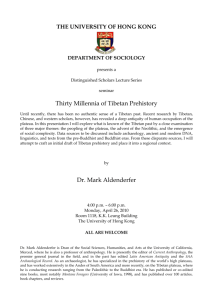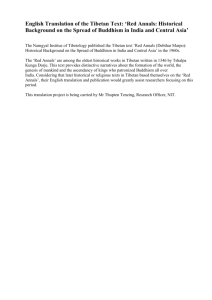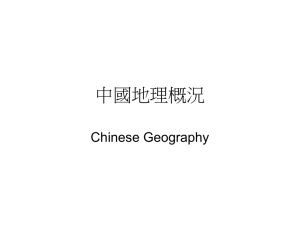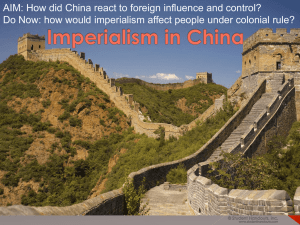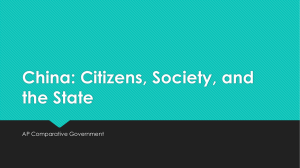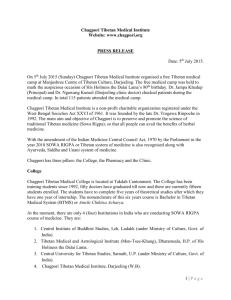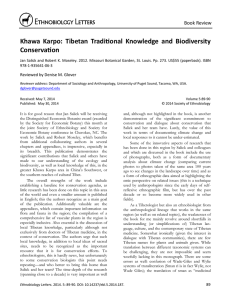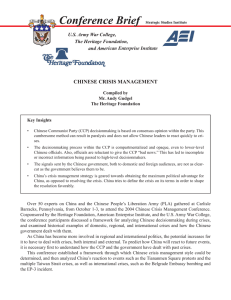Post-Revolutionary-Narratives-Barnett-et
advertisement
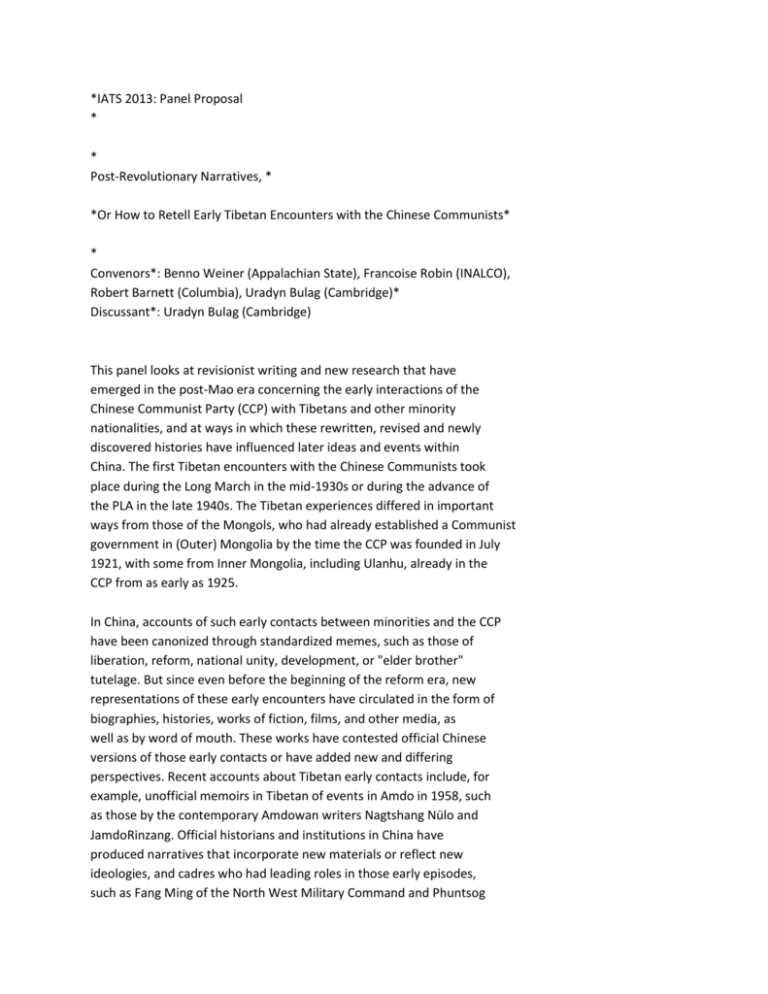
*IATS 2013: Panel Proposal * * Post-Revolutionary Narratives, * *Or How to Retell Early Tibetan Encounters with the Chinese Communists* * Convenors*: Benno Weiner (Appalachian State), Francoise Robin (INALCO), Robert Barnett (Columbia), Uradyn Bulag (Cambridge)* Discussant*: Uradyn Bulag (Cambridge) This panel looks at revisionist writing and new research that have emerged in the post-Mao era concerning the early interactions of the Chinese Communist Party (CCP) with Tibetans and other minority nationalities, and at ways in which these rewritten, revised and newly discovered histories have influenced later ideas and events within China. The first Tibetan encounters with the Chinese Communists took place during the Long March in the mid-1930s or during the advance of the PLA in the late 1940s. The Tibetan experiences differed in important ways from those of the Mongols, who had already established a Communist government in (Outer) Mongolia by the time the CCP was founded in July 1921, with some from Inner Mongolia, including Ulanhu, already in the CCP from as early as 1925. In China, accounts of such early contacts between minorities and the CCP have been canonized through standardized memes, such as those of liberation, reform, national unity, development, or "elder brother" tutelage. But since even before the beginning of the reform era, new representations of these early encounters have circulated in the form of biographies, histories, works of fiction, films, and other media, as well as by word of mouth. These works have contested official Chinese versions of those early contacts or have added new and differing perspectives. Recent accounts about Tibetan early contacts include, for example, unofficial memoirs in Tibetan of events in Amdo in 1958, such as those by the contemporary Amdowan writers Nagtshang Nülo and JamdoRinzang. Official historians and institutions in China have produced narratives that incorporate new materials or reflect new ideologies, and cadres who had leading roles in those early episodes, such as Fang Ming of the North West Military Command and Phuntsog Wanggyal from the South West, have published memoirs that seek to write their versions of history, and sometimes their own roles, back into the record. In many cases, the disinterment of long-buried histories, the heterodox retellings of canonic narrative,and the exposure of previously untold episodes and narratives have been constitutive -- they have not just changed or challenged narratives of the past but have also led to the circulation of new memories, explanations, claims and accusations that in some cases have shaped contemporary events as well. In this panel, scholars of history, anthropology, literature, film and other fields look at new and revised versions of the early encounters of the non-Chinese within China with the Chinese Communists and assess their impact and implications.
